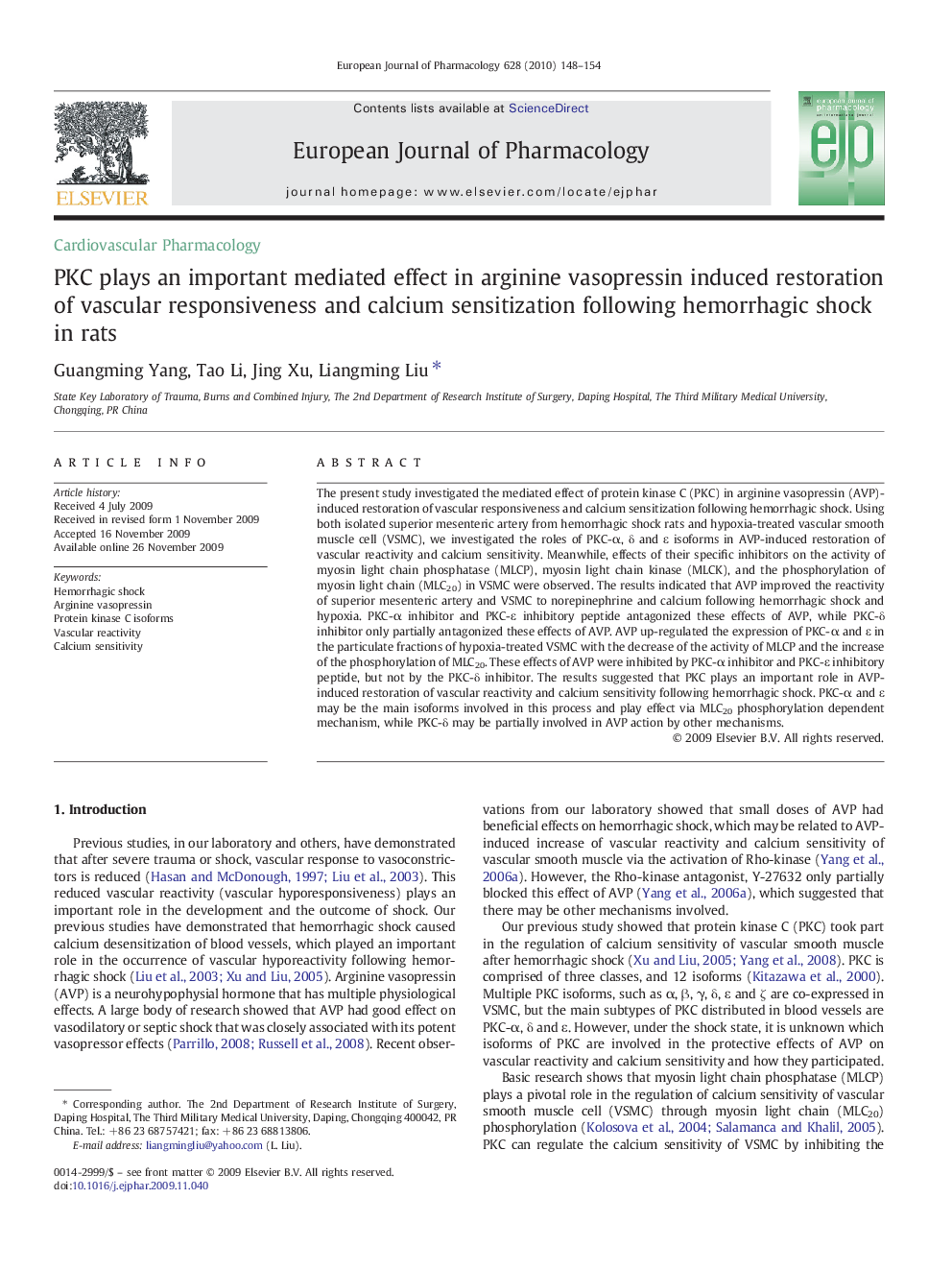| Article ID | Journal | Published Year | Pages | File Type |
|---|---|---|---|---|
| 2533816 | European Journal of Pharmacology | 2010 | 7 Pages |
The present study investigated the mediated effect of protein kinase C (PKC) in arginine vasopressin (AVP)-induced restoration of vascular responsiveness and calcium sensitization following hemorrhagic shock. Using both isolated superior mesenteric artery from hemorrhagic shock rats and hypoxia-treated vascular smooth muscle cell (VSMC), we investigated the roles of PKC-α, δ and ε isoforms in AVP-induced restoration of vascular reactivity and calcium sensitivity. Meanwhile, effects of their specific inhibitors on the activity of myosin light chain phosphatase (MLCP), myosin light chain kinase (MLCK), and the phosphorylation of myosin light chain (MLC20) in VSMC were observed. The results indicated that AVP improved the reactivity of superior mesenteric artery and VSMC to norepinephrine and calcium following hemorrhagic shock and hypoxia. PKC-α inhibitor and PKC-ε inhibitory peptide antagonized these effects of AVP, while PKC-δ inhibitor only partially antagonized these effects of AVP. AVP up-regulated the expression of PKC-α and ε in the particulate fractions of hypoxia-treated VSMC with the decrease of the activity of MLCP and the increase of the phosphorylation of MLC20. These effects of AVP were inhibited by PKC-α inhibitor and PKC-ε inhibitory peptide, but not by the PKC-δ inhibitor. The results suggested that PKC plays an important role in AVP-induced restoration of vascular reactivity and calcium sensitivity following hemorrhagic shock. PKC-α and ε may be the main isoforms involved in this process and play effect via MLC20 phosphorylation dependent mechanism, while PKC-δ may be partially involved in AVP action by other mechanisms.
